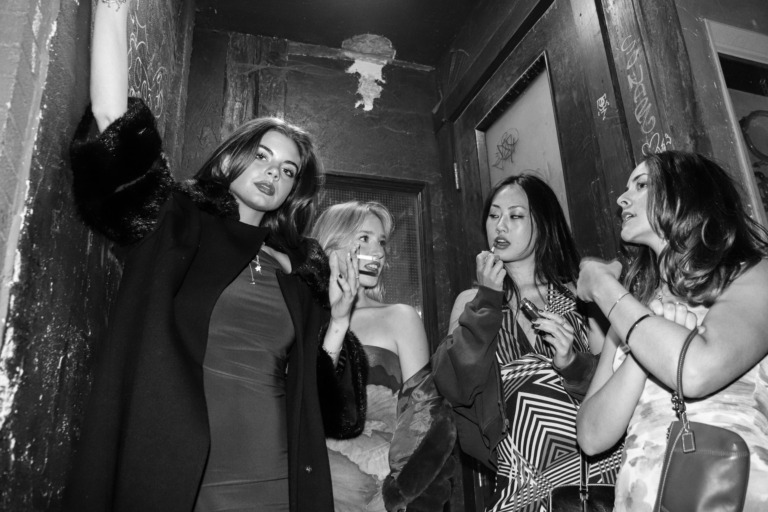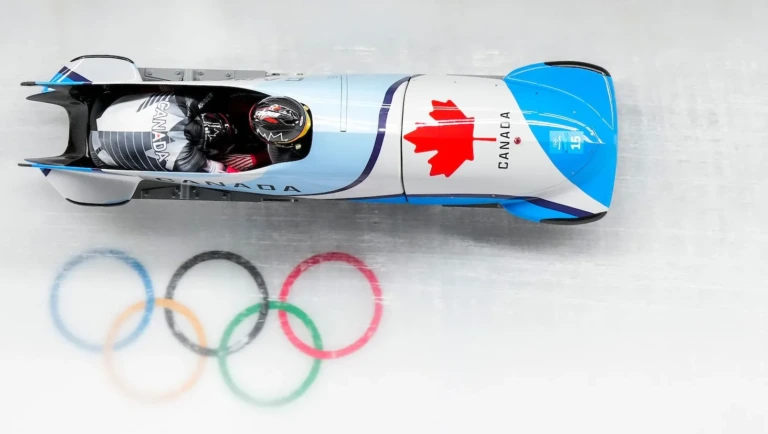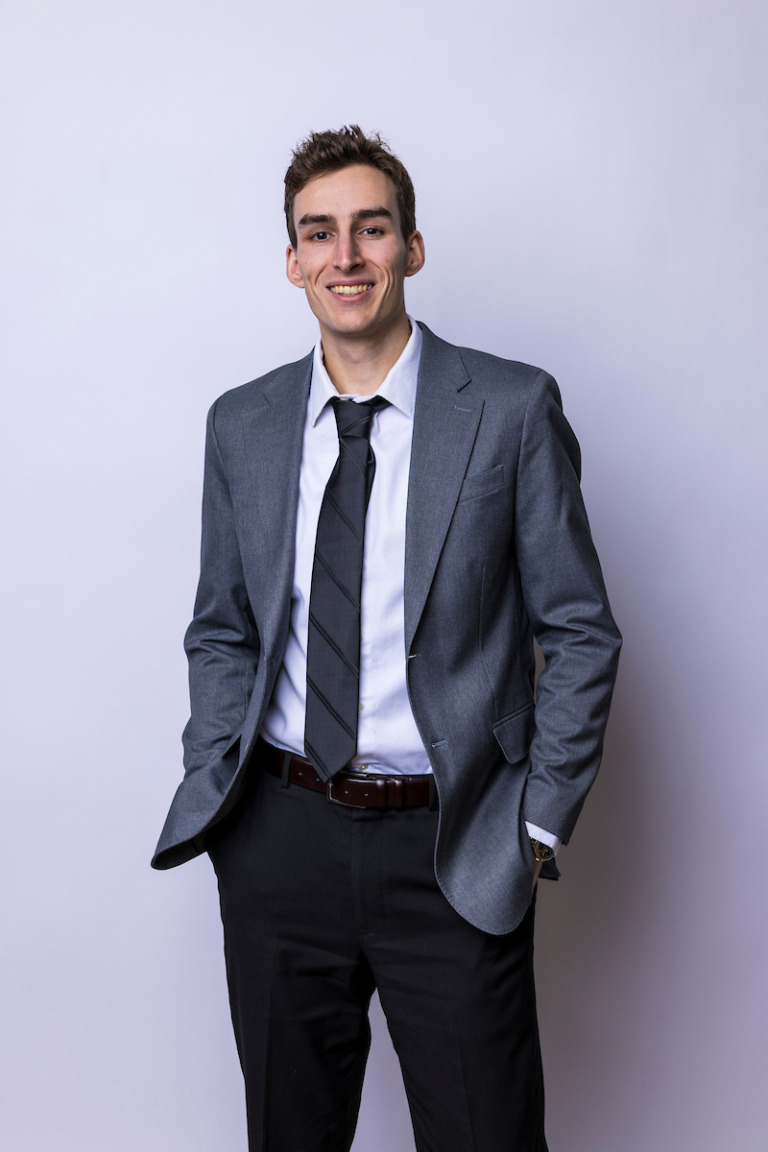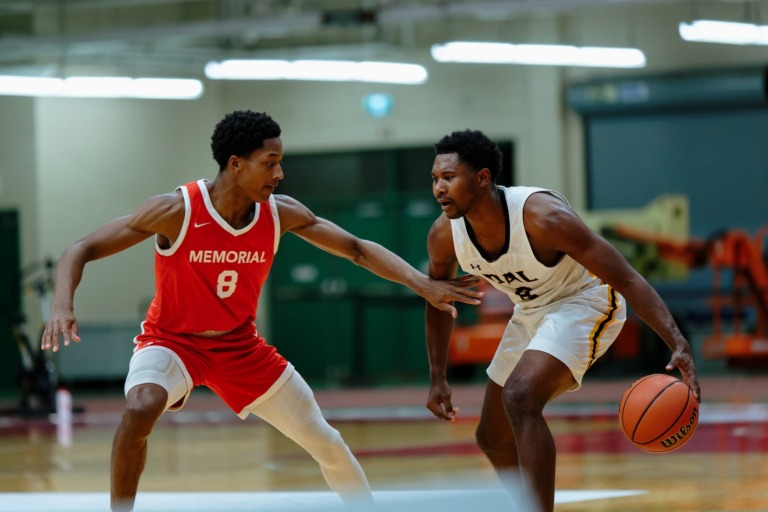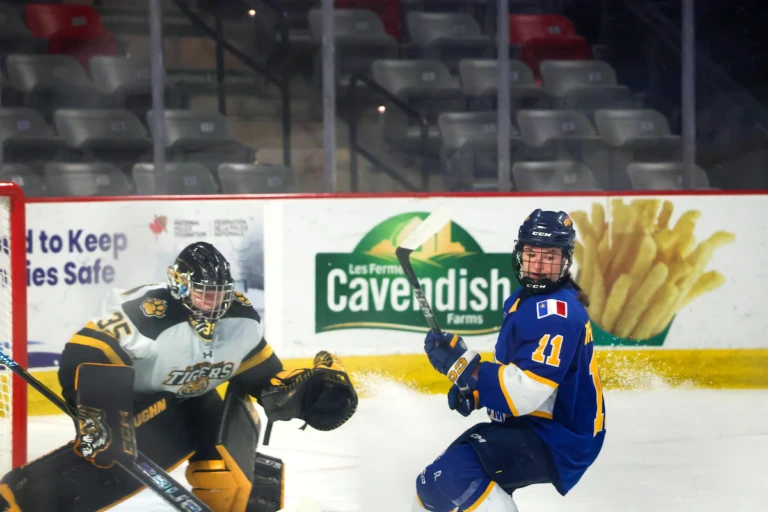
Outgoing and incoming DSU presidents’ chit chat
Reid and Abawajy discuss women in power, racism in DSU election, and Dal admin
Every year, the Gazette interviews the outgoing and incoming DSU presidents to reflect on the past year and ponder the next year. We decided to get Kathleen Reid, outgoing DSU president, and Amina Abawajy, incoming DSU president and outgoing DSU VP Academic and External, to discuss what it’s like being racialized women in politics, dealing with Dal administration and this year’s very weird election.
Gazette: This must be really exciting! We have two women presidents who are also racialized, which is amazing. How do you feel about that?
Amina: I think it’s really exciting, passing the torch. Also just being the first black president is really exciting. And there’s definitely a lot that I have taken from Kathleen and want to take into next year.
Gazette: Like what?
Kathleen: On the spot!
Amina: Kathleen was really good at ensuring we stay focused and not get distracted or get off-topic. She’s really good at checking in with folks, which I think is really important. The stresses of the job are not just physical, there’s emotional work, as well. And it’s important to recognize that as important work and check in with that work and the effects of it.
Kathleen: Our executive last year was the first female dominated executive in who knows how long – if ever. So that was really appealing to me because I have been working with the DSU for six years now and the way that the DSU has been run for the greater part of my undergrad was by men. I think that the DSU has done a really good job in the past, but it was fairly unprecedented coming into it to see the way that every role shifted.
I was the first female VPSL in a while, the first female president in a while. I was having this conversation with someone a while ago that people who come to you just because of difference in experiences and lived experiences is totally different. I am in touch with Dan [Nicholson, DSU President 2015/16], and we have a lot of conversations about when I’m having a tough time with my job, and I don’t know what to do, he has been a mentor to me. I’ll reach out to him and be like, ‘Did anyone ever approach you about this?’ And he’ll say, ‘Oh, no one has ever approached me about that topic.’ Specifically, sexual assault, I would say. It’s a really interesting shift to see why it’s important to continue to switch up what type of person is in the role. The president’s role, too, is so not structured. You can do whatever the students want you to do. Every year, it’s going to be a different goal.
Gazette: Sexual assault was a big point of yours this year. And then you got the levy passed for the sexual assault survivor centre, which was huge. What’s the plan to help combat sexual violence and assault on campus for next year? Because it’s fucking rampant. Dentistry was only a few years ago, and really, how much have things changed?
Amina: It’s funny that you mention Dentistry because that was my first involvement with campus mobilizing. I was working at Avalon Sexual Assault Centre at the time – I’ve been working there for two years – so I’m really excited that this levy passed and to build a strong foundation for it. We have been planning, we’ve been setting out our yearly goals, three-year goals, our five years goals.
Kathleen: Our GM, Craig, has been helping us facilitate these conversations. He has been really helpful because he asks: ‘If you could have a 10-out-of-10 on one aspect of the centre, let’s say for services, what would that look like?’ Then we’ll list them all off. And then we work our way backwards from them. What steps are we taking to get to a 10-out-of-10 in three years, what steps are we taking every year to get there? We’re doing it in a really calculated way. We’ve asked students to pay into this and we’re aware of that. It sucks that a service like this has to be student-funded, but because it is student-funded, then we can run it exactly how we want to and don’t want to waste students’ money. So we’re trying to be really, really organized with every move we make.
Gazette: What are you specifically hoping to do with the sexual assault survivor centre?
Amina: Our three biggest areas are services, advocacy and education. Under the services, we’ve been talking about the phone-line; under advocacy, we split it into government and university – ensuring that our policies are sound and updated, lobbying for mandatory reporting; under education, we’ve been talking about mandatory training for bar staff and, the end goal, for everyone.
Kathleen: The end goal is consent-based education.
Gazette: Jacqueline [Skiptunis, VPAE 2014/15] was trying to pass a mandatory course like this through a few years ago. That was contentious and faced a lot of backlash.
Kathleen: Yeah, for sure. But overall, I think the main goal is also to have a care/check-in process for our volunteers because a lot of our services are volunteer-based. It’s great that we had a pilot project for the phone-line this year. One of the biggest and most tough issues is that you have 50 people doing emotional labour every day, so how do you make sure that they’re okay and have the stamina and resilience to keep going through that too? That’ll be a huge part of it. The more that we’re public about it, the more that we’re talking about it, people will come out and want to be a part of it, but that’s going to trigger folks because it’s a big topic on campus all time.
Gazette: Yeah. The administration wasn’t super supportive of the phone-line. How have you been doing with the administration this year, in general? The administration has seemed a bit more distant this year. Or have they just been extremely cooperative?
Amina: Our lines of communication have been more open, so we’ve been meeting biweekly with senior and weekly with student affairs. It’s been helpful for us to bring up points and getting feedback, and vice-versa. I’d say they’re still contentious around certain issues, less contentious around others. But we’ve been trying to work with them as best as possible.
Kathleen: I think it’s easier for certain VPs to work with the admin than others. Amina’s role as VPAE is contentious by nature to a lot of the things the admin are doing. She’s mandated to challenge the administration. Whereas someone like VPSL, Kelsey, can collaborate with them on student events and work together on mental health initiatives.
The one good thing I’ll say about the admin this year is that they hired a new Vice Provost Student Affairs, her name is Dr. Arig al Shaibah. We took a while to get to know her and see what she’s about, but she’s proven incredibly dedicated to pushing as much as an anti-oppressive lens on student affairs as she can, with the restrictions she has regarding a university of our size and our funding. But I think she is an ally within the admin. In the past, other folks haven’t tried as hard as her.
Gazette: What kind of issues have been contentious between the DSU and the administration?
Amina: The Day of Action, for example. For example, there was a trip happening to Truro. The admin said they would love to fund the bus and get Truro students more involved. So I said, ‘Oh, next week, the Day of Action is happening and we’re bringing a bus-load of Truro students down for it. Would you like to fund that bus as well?’ And they were like, ‘Oh, haha.’
Kathleen: We’ll bring up a specific issue when we’re having a meeting, and there’s certain things they just can’t support us in. I think that’s what’s really cool about having a union at a university because you need that other voice who isn’t driving this great university image. We’re driving the realistic student image. Amina and I sometimes bring issues to the Senate, and that also sometimes isn’t the most receptive thing either. In a perfect world, we wouldn’t need a union, but we do.
Gazette: Kathleen, what are some of your highlights from this year?
Kathleen: We already talked about the sexual assault survivor centre levy, that was something that was a ton of work and seeing it pay off was a really cool thing. Rhiannon and I were the main campaign people for it and we had a lot of conversations about consent and what sexual assault and gender-based violence on campus are. A lot of folks are just uneducated. It’s not that they’re apathetic, it’s that they’ve never seen this content anywhere. That’s why it’s so needed. It was cool to have those basic entry lines into people’s consciousness.
Seeing the team come together was also a big one. Seeing the VPs focus on different parts of our goals. This isn’t the sexiest goal, but we had this goal to improve internal communication and have a better relationship between execs and full-time staff. A lot of times we can be siloed with which staff we deal with. We started this thing where every month full-time staff have inputs into the projects we’re doing and brainstorm on ideas.
Our council this year was really rad – really well-informed, really proactive. A lot of people don’t read the material to the day of, but people really did what they were supposed to do for their constituencies.
Gazette: Amina, what are you hoping to do for next year?
Amina: We talked about the foundation for the sexual support survivor centre. Something I really want to come to fruition – or at least begin during my term – is having a mandatory indigenous course requirement. Perhaps it’s not only a mandatory indigenous requirement, but a course that also talks about consent and sexualized violence, marginalized communities, something that talks about these things from anti-oppressive lens. I’m also really excited to look at our portfolios (their job descriptions). We’ve been noticing for a number of years that some of the portfolios aren’t the best—
Kathleen: –allocation of resources. Certain folks shouldn’t have those responsibilities within their portfolio and having their time eaten up by specific things that are out-of-date because the portfolios haven’t been updated in so long.
Gazette: So how do you, as an exec, take care of yourselves? You have so much work and emotional work. [Amina took six courses this year while being VPAE!]
Kathleen: I’ve been doing executive work for two years now and before that I was really heavily involved, as the O-week Coordinator and director for TEDx. I’ve had quite a ride with the union. People have asked me how I keep going. I think it’s because for the past six years, it’s the thing I see myself doing: next natural step is VPSL, next step is president. When you’re looking at that, you have to make priorities in your life. Self-care is important, and I’m not great it. I’m young and happy to do emotionally hard work and lots of work. Doing self-care in small ways is really important. When you’re having a really intense day, going meeting to meeting, having a bottle of water for me is self-care. Even if it’s something really small, when I make sure I take time to drink water or grab a coffee, it’s not the fact that I’m drinking water because it’s healthy, it’s because I’m thinking, I’m taking care of myself. You have to look at it in small ways like that.
Checking in with your team, it’s super important that you do that and they support each other. When we first started transitioning into our roles last year, we checked in with each other at the end of every day, and that became a thing we tried to do – obviously, a little less often. I made an effort to check in with people as individuals rather than as a group to know what everyone’s going through. We also don’t have a boss! Students are our boss. Working in a 9-5 desk job environment, but the students are governing what we do, but we don’t have someone who is like, slow down, stop. People glorify being busy, but you have to do it to get the job done. I don’t think people should glamorize it. It’s rough.
Amina: The biggest thing is that the team has been really solid. When times are rough, they’re super willing to reach out. Self-care is really hard. It’s hard to say no to things because you want to be there and do the best job possible. I’m still figuring it out. It’s an ongoing thing.
Gazette: Even just running in the DSU election this year must have been exhausting. It wasn’t as well-organized, there were few candidates running in it – it was sort of a weird election. How did you two feel about the election?
Kathleen: The general election this year was tough for us because we had just changed our by-laws. This year is the first year we’re running it the way it’s supposed to be run. When we turned over our by-laws, automatically denoted every policy and we had to change elections policy in a short amount of time and we didn’t have a policy director. So that pushed us back four months. We didn’t have an elections committee until January, when usually we have them in September. But we need council to approve the changes.
Regarding the small amount of candidates, there are chunks of students in different years who want to run. It ebbs and flows. Like my year, there was a huge presidential race, but this year, the position was uncontested.
Amina: It was really amazing to see that five out of eight exec candidates who were running were women, a lot of them racialized. I think we drew a different crowd this year. I think it’s because of the people who were in those positions this year.
Gazette: We really saw the ripple effect of the women from diverse backgrounds who were in these positions this year.
Amina: Even though it was uncontested, I think there were a lot of challenges this year. A lot of issues came to the forefront this year while campaigning, which was hard.
Kathleen: She’s being modest. This campaign was riddled with racism. Students showed during the campaign period that racism still exists on this campus and people comfortable showing it.
Amina: I’d prefer not talk about my experience with it because it’s so fresh, but it just shows how much more work needs to be done on campus, regarding racism.
Gazette: Understandable. Anything that you would like to end off with?
Amina: I really respect Kathleen for being in this position that has been male-dominated for so long. The expectations are a lot higher, but you’ve just done an amazing job in every way.
Kathleen: This is a bit of a love-fest. Amina and I didn’t know each other well going into the executive last year, but we have become pals. But it’s really cool to see this being passed on to another woman. I know that I can pass as white, despite being a half-Japanese woman. So being able to see an even more important perspective coming to this role by Amina is amazing. I’m sad to leave, but I’d be kicking and screaming if I wasn’t leaving the role to someone as amazing as Amina.
This interview has been condensed and edited.

